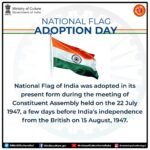GOVT DEFINES E-COMMERCE MARKET PLACE RULES, ALLOWS 100 % FDI

The government on allowed 100% foreign direct investment (FDI) in online retail of goods and services under the so-called “market place model” through the automatic route, seeking to legitimize existing businesses of e-commerce companies operating in India.Marketplaces essentially act as a platform connecting sellers and buyers.
It also notified new rules which could potentially end the discount wars, much to the disappointment of consumers. This is because the rules now prohibit marketplaces from offering discounts and capping total sales originating from a group company or one vendor at 25%.
So far, India has allowed 100% foreign investment in business-to-business (B2B) e-commerce but none in retail e-commerce—i.e., business-to-consumer, or B2C.
According to the press note issued by the department of industrial policy and promotion (DIPP), a marketplace model is an information technology platform run by an e-commerce entity on a digital and electronic network to act as a facilitator between buyer and seller. However, DIPP has prohibited FDI in e-commerce companies that own inventories of goods and services and sell directly to consumers using online platforms. The marketplace e-commerce companies will be allowed to provide support services to sellers on their platform such as warehousing, logistics, order fulfilment, call centre and payment collection.
The new policy also mandates such e-commerce companies to display contact details of the sellers online. The warranty/guarantee of products or services sold online will also be borne by the sellers, not the e-commerce company.
The government in the budget allowed 100% FDI in marketing of food products produced and manufactured in India. In November last year, the government also allowed a manufacturer to sell its products manufactured in India through retail e-commerce.
CROSS REFRENCES
Marketplace Model
A pure ecommerce marketplace follows a zero inventory model. eBay, Naaptol, and Shopclues are examples of ecommerce players that follow the marketplace model. The company acts as a meeting ground for buyers and sellers without storing goods. But they do offer shipping and payment assistance by tying up with selected logistics players and financial partners.
Inventory-Led Model
It’s when a company sources directly from brands & sellers and stock it. There are no multiple sellers selling one product, unlike marketplaces where buyers get to choose from several merchants. The seller is the ecommerce company and invoice is issued to the customers on the company’s name. One such example is Jabong.
Hybrid Model
A mix of marketplace and inventory is a hybrid ecommerce model. It’s also called a ‘managed marketplace’ model. It is adopted by most Indian ecommerce players like Flipkart, Amazon, and Snapdeal. Under their marketplace fulfilment services like Snapdeal Plus (SD+), Fulfilment by Amazon (FBA), Flipkart Advantage and Fulfilment by Shopclues, ecommerce players offer inventory storage, packaging & delivering services. But a seller is free to choose self-fulfilment or marketplace-fulfilment.
Under this model, ecommerce players also infuse inventory-led in a marketplace by having operational control over seller entities like Cloudtail (Amazon) & WS Retail (Flipkart) and also by starting their own labels.






0 Comments